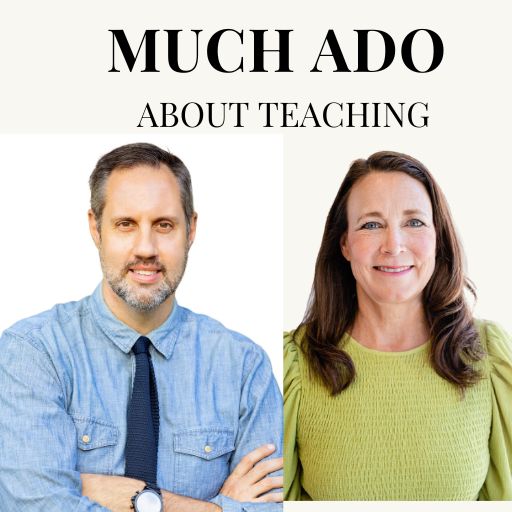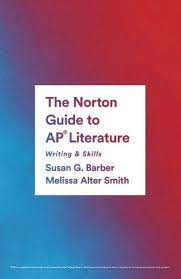With just over 1,500 people voting in this survey on the AP Lit Facebook group, most teachers are heading back to work right about now. I was in the fortunate (HA) group who went back in July and am already a full week into my year with the Class of 2023.
While we all sit through countless hours of PD during preplanning, the looming questions center on day one. Will my room be ready? How can I create a positive first impression of the class? What specifically will we do on day one?
The past few years, I have started with a poetry activity which my students and I both love. In 2019 and 2020, I used the poem “The Crossing” by Ruth Moore. I gave students the first sentence of the poem then cut the rest of the poem into single words and put into baggies by sentences. Students worked together to construct the poem then we reflected on it. Here’s the slide deck I used for “The Crossing” and sentences 2 – 4 blown up for cutting.
.
I honestly have no idea what we did the fall of 2020 because we were virtual, and I’ve completely suppressed that year. I’m sure I could look it up and may one day if I need virtual lessons again but for now, moving forward . . .
In 2021 I decided to work with the poem “Good Bones” by Maggie Smith for our first day. My students always have a positive experience with this poem, and I knew moving it to day one was a good choice. And it was. Here’s the plan:
Students answer roll by repeating one of these phrases:
We play around with these phrases by trying out different inflections and emotions with the phrases then predict what the poem may be about.
Next students use these phrases to put together the poem in puzzle form. A poem puzzle – how fun is that for day one?
After students construct the poem, we spend time reading, annotating and responding to each others annotations.
Finally we watch the “Good Bones” video and this is where the real magic happens. Students have unknowingly built an interpretation of the poem through their work and discussion around it, and many disagree with parts of the interpretation of the video. I love when they point to certain lines and tell me why it should be portrayed in a different way. They’re doing literary analysis one day one, and I’ve never even told them “how to analyze literature.” This lesson checks all of the boxes: engaging, modern poetry, group work, and literary analysis. You can find all of the resources here: Good Bones
This year, just to keep us on our toes, our schedule changed to a C day (or 42 min) on day one instead of a full block. Back to the drawing board for me. 42 minutes is not a lot of time if you’re used to 90 minutes. Here’s what I did on day one then day two (my first full block class).
Day 1 2022: My goal was for students to think about themselves as readers as well as the value that reading has in our lives. Their first task was this:
Students talked about these at their tables, and some shared out to the class. We were nostalgically talking about books on day one with lots of “oh, I forgot about that” and “YES – that one is so good.”







Next students finished this statement, “At the end of the day, studying literature is about . . . ” (I think this idea came from Brian). From day one I wanted students thinking about the WHY behind what we would be doing all year. Here are some of their answers:
understanding the world around us and the feeling within us.
expanding your knowledge. It helps you to learn more about the world around you as well as who you are
the 3 E’s – analyzing and embracing texts to help you educate, entertain, and explore yourself.
finding yourself through other people’s stories.
learning new things and broadening creative expression.
understanding the human experience.
learning new things about life and how different people experience it.
finding out what books you are interested in because they will stick with you forever.
gaining perspective.
studying history and the future.
This seems like a pretty good starting point for the year and a great use of our first 42 minutes. Here’s my full day one slide deck.
Day 2, 2022: I debated doing the “Good Bones” lesson on day two but am saving that for an introduction to poetry later this month. Instead, we jumped straight into literary analysis using the painting “Nighthawks” by Edward Hopper. After a brief visit from our college advisors, we talk through the Big Ideas and Enduring Understandings from the CED. These concepts are what we will be chasing all year as we read, think, and write. We spend time discussing the difference between identification and function and how all of the skills serve as tools to expand on larger ideas (the enduring understandings). This class will not be a scavenger hunt for devices but rather a exploration of how devices and techniques expand our thinking on a subject and aid in building an interpretation of a text. Strangely, this seems to be a new way of thinking for many students. Now we practice reading and thinking about the Big Ideas and Enduring Understandings with “Nighthawks.”
Here’s my full “Nighthawks” literary analysis lesson with a brief explanation of how this rolls out in the slide notes.
Need more ideas?
Here’s one of Brian’s first day lessons: Tennyson’s “Ulysses”
And Gina Kortuem shared some of her first day lessons: Literature is a Verb, Why Teach Literature? , and her second day lesson AP Lit Skills: The Interstate, the Microscope, and the Compass
The bottom line: there’s not one best lesson that works for everyone in every situation. Figure out what best works for your personality, your demographic, and your time allotment then go with it. First days are important, but it’s just one day. This year I kept reminding myself that yes I needed a well thought through first day, but I didn’t need to spend hours upon hours agonizing over the first day lesson. Actually, that’s going to be my theme for the year: be intentional but don’t overthink my plans.
Here’s to a great start to the year!

Susan Barber teaches AP Lit and Writers Workshop/Advanced Composition at Midtown High School in Atlanta, Georgia and serves as the College Board Advisor for AP Lit. In addition to reading, writing, and investing in the next generation, she loves watching college football with her family especially when Alabama is playing.













5 comments
Jean Melek
Entering year 26 and I’ve tried out lots of different things for different courses and grade levels. What those first day lessons have in common is they are challenging and collaborative. I like to set the tone of “we can do hard things together.” I’ve been doing the poem “The Last of the Books” for the last few years with my grade 11 IBDP Language and Literature students, but this year, I’ll be working with mostly 8th graders. I’d be happy to see suggestions
Glenn Morgan
I was thinking about Wuther Crue’s “Ordeal by Cheque” as a collaborative activity to introduce a defensible claim. Much like Susan’s poetry activity , it’s asking students to co-create an interpretation of what happens to the character and finding multiple (i.e., more than two) checks from the story to establish that line of reasoning. As it’s a story told from a totally dramatic point of view, there many different “plausible” interpretations online (so it has to be a one-day in-class activity to be really effective); however, I might save “Ordeal by Cheque” for my short story Boot Camp where I introduce line of reasoning. Is there a link to the “Good Bones” video or is it on AP Classroom?
Susan Barber
I thought about Ordeal by Cheque this year on day one but didn’t have enough time. If you haven’t done it yet, maybe we can do this in our classrooms then have our student share their theories with each other.
Crystal Byers
Funny how this is year twenty-two for me, and each year weirdly seems like year one. I’m excited to try “Good Bones” on day one. The syllabus can wait.
Maggie
Just did this with two AP Lit and one English 12 class. They all loved it. It was wonderful. We had a great discussion about the phrase “could make” and their own role in their own learning. Then we laughed when I told them I’d lead them through the shithole of high school but they could make it beautiful. Really such a great activity and text for first days. Thanks so much!